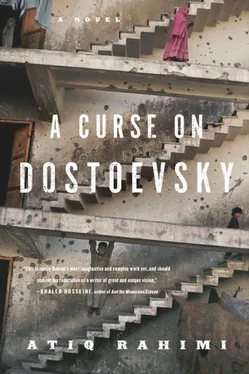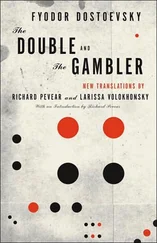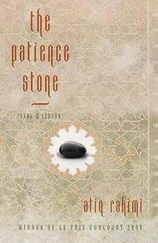Once his rage had subsided and he had come back to his senses my father quickly reloaded his gun; then, with our belongings on his back, he started walking, shouting to me: “Rassoul! Come on, move! Rassoul?”
Rassoul is haunted by this strange story, which he has titled “Nayestan”—the reed field. It lives in him, silently and religiously. His father, too, used to tell the story over and over again, wherever he was, at any time, to anyone. Each time, he would ask Rassoul to fill in the details he had forgotten. This was to establish him as a witness to the incredible adventure—but Rassoul didn’t like joining in, and would leave as soon as his father started the story. Not that he’d had enough of it. No. It was just that he would have liked the story to remain a secret between him and his father. Why? He had no idea. And he still doesn’t know. But he often tells himself the story, from beginning to end. And each time he adds something and leaves something else out. From time to time, he lingers on a particular moment or image that is particularly pertinent to his current state of mind. That is why he has never wanted to write the story down, to fix it on paper. If he wrote it down, it would be flawless, featureless, dead. In any case, he is no longer able to tell what his father has added and what he himself has introduced; what is true and what is made up; what belongs to memory and what to his dreams… But it doesn’t matter. What is curious right now is that he keeps thinking about the look in the donkey’s eyes. What was hidden behind that dumb gaze?
Everything. That lost, innocent, incredulous gaze cried out to him: “But why am I lost? Why can’t I find my way? Where is the path? Is this not the path I’ve always taken? What’s going on? Why can’t I recognize where I am? Why is this road so foreign to me? Is it because it’s night-time? Or because I’m afraid? Tired? Uncertain?” From a lack of response, these questions turned into a kind of stupor. To hell with the reasons why. The donkey was there, lost. And it knew that it would never find its way again. So all it could do was groan: “What is to be done,” with no question mark.
What is to be done. Rassoul sits up. The pistol slips from his sweat-drenched chest. His heart is beating madly, as if about to explode, to burst from his chest and land next to the weapon.
He grabs the pistol with a trembling hand and points it at the top of his nose, just between his eyes. He presses the trigger. It isn’t loaded, he knows that; he just wants to practice, to find out how easy it is to shoot himself in the head.
It is easy, very easy in fact. All he has to do is close his eyes.
He closes his eyes.
To no longer think. No longer think about anything. Or anyone. Not even his enemy, his hatred, his failure.
He is no longer thinking about those things.
Focus on the pistol. His soul is the bullet; his body, the trigger. The only thing remaining is the action, as simple as a game. A game with no winners or losers, no opponents. You just have to believe in the game, your game. And think only of the action. Nothing else. Not the realness of the game, nor its futility. The only thing that matters is to execute it well, following the rules. And not to cheat.
Now, he must load the bullet, and put the pistol back between his eyes.
The pistol is heavy.
Or his hand is weakening.
He is thirsty.
You mustn’t think about water, either. Just tell yourself it’s a game, and that when the game is over, you can stand up and drink some water.
You close your eyes.
And you shoot.
ARE YOU dying, then?
Yes, I’m dying. I’m dying from a hole between the eyes from which a stream of blood is spurting, running onto the mattress, then the kilim, and ending up in a hollow of the floor, where it forms a red pool. The shot rings out in the room, the courtyard, the city. It wakes Yarmohamad. He thinks that someone has fired a shot in the street, outside his house. He turns over in bed. Rona is worried and insists that he check the shot wasn’t fired inside the complex, at me. Yarmohamad doesn’t give a damn. “Good riddance,” he mutters, huddling deeper under the sheet.
At dawn, after prayers, he will come to my room and stand silently at the door.
Why would he come?
Yes, why would he come? He won’t come. My body will remain here. Decomposing. I will be covered in flies. It will be the stink that finally brings him, two or three days later. At first he will only notice the silence. He will knock once. No response. He will push at the door, and it will open easily with a click. On finding my bloody corpse he will panic, aghast at the idea that he might be accused of murdering his tenant. Then he’ll see the pistol in my hand and realize that I have committed suicide. He’ll run to tell Razmodin.
And then?
Nothing. They’ll understand that my suicide was my last sigh at a world that no longer responds to or surprises me.
But, Rassoul, who will say that you’ve committed such an act? Nobody. Not Yarmohamad, or Razmodin. You know perfectly well that suicide isn’t part of your culture. And you know why.
First, in order to commit suicide you have to believe in life, in the value of life. Death has to be worthy of life. Here, in this country, these days, life has no value at all, and therefore neither does suicide.
Next, suicide is considered an ungrateful rebellion against the wishes of Allah. As if you were saying to him: “Here, I’m giving it back before you ask for it, this filthy soul that you introduced into my innocent body!” It’s showing that you are more powerful than him, that you won’t be his slave, his banda . Suicide is giving up your soul, without gratitude.
Before being buried, your body would be whipped. That’s why no one admits to suicide. All suicides are disguised as murders. You will merely be a victim, a shahid , one martyr among many. You who wanted to be an Übermensch .
A shahid ? No thanks! That’s what everyone wants, these days. There’d be no point in that. The whole world would have to know that I had committed suicide.
So, go to a busy crossroads, make a speech and then shoot yourself in the head in front of witnesses. That way everyone will know. But even then, no one will understand the theoretical importance of your act. Each person will create their own explanation. One will say: “He was sick”; another: “He smoked a lot of hashish”; someone else: “It was remorse. He behaved badly toward his family”; or “He regretted being a collaborator, a communist, a traitor!”; and, if they eventually find out that it was you who murdered Nana Alia, they will say that it was your bad conscience that led to your suicide. Yes, no one will say that you committed suicide just because you’d come to the end, that your questions lacked a question mark, that all your questioning had come to nothing more than this stupor faced with the sudden absurdity of life. No one will say that you killed a louse, a loathsome, harmful creature, to attain the status of a “great man” and thus take your place in history. What’s more, don’t forget that today, here, in this country, everyone wants to attain that status. Everyone is fighting to become either a ghazi , if he kills, or a shahid , if he is killed. Your nearest and dearest will make you out to be a ghazi , because you killed a madam, and a shahid , because her family killed you in vengeance. On your tombstone they will write: “ Shahid Rassoul, son of Ibrahim,” whether you want it or not.
No. I don’t want that.
Well, then, put down the gun.
So I don’t even have the freedom to commit suicide?
Читать дальше












